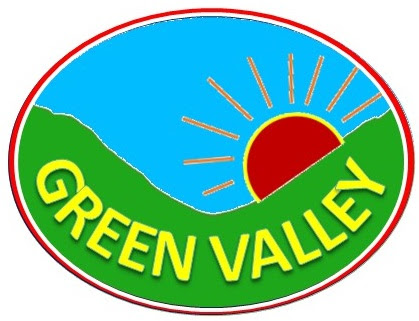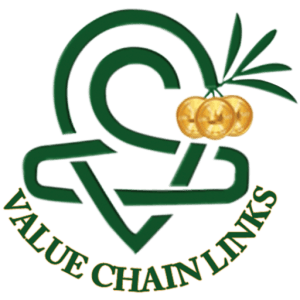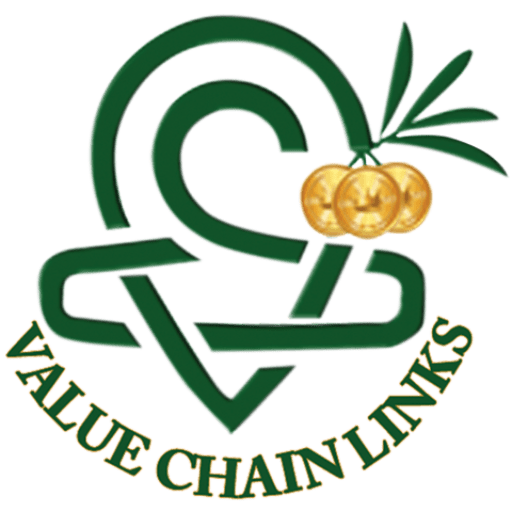BY DR. NIMROD

| *This article tackles general problems common to the Agri-sector in rising economies. |
| Some fresh produce Importers / Exporters to Europe gave up on the idea to source greater quantities of high-quality mangoes from Africa, and Asia, which produce most of the world’s mangoes. Instead, they import from Latin America. This article is not for you if you believe the above is an unchangeable fate. However, if you want and wish to import in 2021 high-quality mangoes from Africa, and you don’t believe in magic, then you should read this article. THE BLUE (RED) OCEAN STRATEGY THEORY The norm of business is for companies and organizations competing against each other. Companies compete by offering buyers better, improved, or somewhat different “features” of the goods/services (including pricing) in an effort to differentiate themselves and become more attractive. The Blue Ocean Strategy was developed to explain the phenomena of companies that managed to grow much faster, although active in the same industry as others that struggle to survive. It appears that such companies, e.g., Apple, created through innovation, new markets, and new demands. The Blue Ocean Strategy is applicable to all industries and sectors, including the agri-business and its sub0sector; fresh mango exports. |

According to the Blue Ocean Strategy Theory, all companies choose and act according to one of two business strategies; Red or Blue Ocean.
What is the Blue Ocean Strategy?
“Blue ocean strategy is the simultaneous pursuit of differentiation and low cost to open up a new market space and create new demand. It is about creating and capturing uncontested market space, thereby making the competition irrelevant. It is based on the view that market boundaries and industry structure are not a given and can be reconstructed by the actions and beliefs of industry players”

While in the Blue Ocean, there is plenty of fish (business) and few fishermen, in the Red Ocean, there are plenty of similar fishermen competing on a few fish.
Red Ocean inhabits many sharks (competitors to get the fish) and some small fish. The sharks are biting the fish, as well as each other, making everybody bleeding, turning the watercolor to red. Watch it; the red you see is “your blood” (money) as well when you choose and act according to the Red Ocean Strategy.
THE AGRI-INDUSTRY RED OCEAN REALTY
As in any industry, also in the agri-industry, we mostly find companies implementing the Red Ocean strategy. When we are looking today at the traditional agri-sector, the Red Ocean Strategy is practically 100% of it!
Hence, competition is fierce; margins are small, profits are very hard to make and sustain. Poverty is one of the outcomes that stem from that situation.

The mango agri-industry: from a farmer, importer/exporter perspective. The Red Ocean of today (left side) versus the Blue Ocean opportunities (right side)
Now let’s wear the Blue Ocean Strategy glasses and analyze the possible situation change.
RED OCEAN MANGO PRODUCERS – Farmers and exporters in countries on the left side experience fierce competition from other farmers and exporters, all capable of growing and exporting at the required quality and quantity.
In these countries, many farmers supply Export Quality Mangoes to many different exporters. Competition over price, quality, and quantity is fierce both among farmers and exporters. The result is the continuous erosion of income and profit.
BLUE OCEAN MANGO PRODUCERS – On the right side are countries with a big mango industry, yet no one considers them to have the ability to become important exporters. Their many farmers market the low-quality mangoes, almost exclusively, on the local market. They compete on low price limited markets and have no export quality mangoes (EU standards). Zero export to the EU!
Hence, there is no competition among importers/exporters – as they are not willing to buy the produce at the current quality.
IMPORTANT. Countries on the left side (Blue Ocean) used to export mangoes to the EU, but then it stopped due to phytosanitary issues.
Note the red circle and the question mark around the countries on the right side. It is because they are not yet Blue Ocean countries. However, I’m confident they can become such if given the right innovative solution to the problem prevented them from achieving that status.
Think for a moment, what will happen to the exporter(s) / importer(s) who will enable farmers to export from these countries to the EU!?
Is it even possible, or wishful thinking, just a dream?
It’s good to dream, but my job is to concentrate on the possible. It took me years of investment in the development of innovative technologies, methods, and protocols to make the above possible.
At last, it is time to turn ‘non-existent markets’ into Blue Ocean and for the value chain to reap the economic rewards and change the lives of millions.
BLUE OCEAN IS A THEORY UNTIL IT IS REALIZED
It would be fair enough to say that none of the countries, e.g., Kenya, Ethiopia, Nigeria, on the right side of the arrow are at the Blue Ocean markets today. They are not.
Let’s consider WHY they are not?!

At the moment, they share the same unflattering characteristics of an extensive mango industry, having many farmers supplying low quality produce, which is highly infested by fruit flies (50% to 80%).
Under such phytosanitary conditions, no exporter/importer, who is considering himself professional, would source mangoes from those farmers to premium markets.
But what would happen if we were to change the formula (the paradigm) and were able to free the mango growers in those countries, and especially the advanced ones, from the damage caused by fruit flies, which is the reason why they stopped exporting from the first place!
Oh, if that took place, then we have plenty of potential farms all over Africa (and other continents), offering a high amount of export quality supply.
Under that scenario, farmers who could offer export quality produce, free of fruit flies and chemical residues, would become highly attractive to all exporters/importers.
The same with exporters/importers who would enable their farms to have such an advantage and thus increase their income.
According to the theory, the Blue Ocean Strategy “is about creating and capturing uncontested market space, thereby making the competition irrelevant.”

GREEN VALLEY CREATING VALUE
The Blue Ocean theory is teaching us that you can improve your business if you create a new market and make competition irrelevant to your clients.
Green Valley protocol does exactly this.
It enables any exporter to source fresh mangoes, at the highest quality, at any time, thus enables unlimited supply, regardless of fruit fly activity and damage in the region in previous years.
Green Valley creates new Blue Ocean markets wherever it is applied. Furthermore, it can be initiated and applied by farmers, exporters, and importers. It enables to produce higher quality and quantities while extending the harvest season. Hence, it creates new consumers’ demands. Competition is irrelevant since no other protocol, but Green Valley, is able to deliver such results!

EXAMPLE – CURRENT REALISTIC SCENARIO
Allow me to use a theoretical example (still based on real field results and experience) to demonstrate how Blue Ocean can be immediately created when applying the Green Valley protocol.
For our example, we will think of Joseph, a professional mango grower from Africa. Joseph’s current fruit production potential is 1000 tons.
Today, due to an Export Ban to Europe, imposed following repeated interceptions of fruits infested by fruit flies, he sells all his produce on the local market and gets the low local prices.
In the recent season, in an effort to control fruit flies, Joseph sprayed insecticides weekly, put traps, and did sanitation. He invested a lot of money, work and sprayed chemicals to rid of the flies. To give himself a head start and try to avoid infestation, Joseph even started the harvest early in the season, long before mangoes are ripe, as they should be.
[Early harvest means that the mangoes are harvested raw, hence will be smaller, less color, and not as tasty as they can be when ripening a couple of weeks later.]
Joseph can’t wait for the mango to naturally mature, as it should be, because waiting is risking of increased fruit fly infestation. Although he is not exporting, he needs to harvest early, or even the local market will refuse to buy his produce.
Joseph started harvest having 30% fruit fly damage. Only four weeks later, he had to stop the harvest as fruit fly infestation reached 80%! At that stage, 30% of the mangoes were still on the trees, but no one would buy them.
Overall, Joseph lost about 75% to 95% of the potential revenue compared to a situation where he could have freely exported his mangoes.
Once again, Joseph’s fruiting season was short and painful. Once again, he invested a lot of money, got some income, but lost much more.
Once again, exporters/importers are left out of reach of export quality fruits, meaning no income and no profit. At this point, they have lost hope to source mangoes from Joseph and his fellow mango producers, not even to second or third-tier markets.
The above is a VERY realistic situation description of the mango industry in Joseph’s country. Consequently, the agri-industry is rapidly deteriorating; many farmers abandon their mango orchards, and some even uproot them.
EXAMPLE – GREEN VALLEY SCENARIO (BASED ON FIELD RESULTS)
Now think of a Blue Ocean scenario where Joseph’s farm is active under the Green Valley protocol, design, and capable of effectively manage fruit flies to the level of Export Quality.
For the first time ever, Joseph enjoys zero fruit fly sprays, no labor or any additional costs associated with traps and sanitation, and… no chemical residues in the fruits.
Instead, this year Green Valley activates and applies the Fruit Fly Certified Trade Zone (FFCTZ) in Joseph’s farm and around it. FFCTZ is the leading cutting edge protocol for fruit fly management free of sprays.
The protocol is applied year-round (12 months), but Joseph is completely free of worries, minding his business, growing the best and tastiest mangoes.
What are the results like?
This year, the fruit fly infestation is down by over 99%!! YES, it is the first season of Green Valley on Joseph’s farm, and the infestation has already dropped by 99%!
Fruit flies are no longer a problem, and Joseph doesn’t care when the rainy season begins this year [Note, fruit fly infestation soar as rains begin].
For the first time, Joseph avoids the costly-treatment of forcing an earlier flowering. For the first time in his life, Joseph starts harvesting when fruits naturally mature and ready to harvest upon demand.
There is no longer a time limit to the season, and harvest continued eight weeks longer than ever before! Joseph is able to collect ALL fruits from his fields.
The importer – as requested and expected – is getting the highest quality fruits, spread over a longer period. Joseph is relaxed with the harvest, can focus on improving fruits’ quality.
Most importantly, for the first time, Joseph gets a call from an EXPORTER who wants to buy and export his fruits. This year, he harvests all fruits, and all Export Quality fruits are exported.
Now that Joseph is exporting his mangoes, his income has significantly increased, his life and future has changed for good and forever [>><<].
The EU supermarkets getting compliments and very positive feedback from consumers, saying that the taste and the looks are superb, like never before and like no other producer or country offers. Consumers are asking for more fruits with the Green Valley certification label, and the importer is asking Joseph to expand his production and is ready to invest in such a venture.
Differentiation advantage in mango exports is finally achieved, and Biofeed’s Blue Ocean Strategy is bringing results.
This Blue Ocean enables many more farmers to export –
* From farms where export was impossible before.
* During a much longer period.
* Greater produce quantity.
* Zero fruit fly sprays.
* No chemical residues.
* And… a much better taste and looks.
Example final conclusion and result –
Needless to say that all parties of the value chain enjoy a higher income than ever before and are looking forward with confidence toward the next year.
NOTE
The above example is not theoretical; the parts in the mango orchard already took place many times, in several countries across Africa and India (see the link below).
A Blue Ocean was created. It is a fact!
Fruit flies and the rainy season are not a problem anymore for the production of export quality mangoes, even when farmers in the surrounding farms suffer 80% fruit fly damage. Yes, 80% fruit lost!
WHERE DO YOU WANT TO SOURCE YOUR MANGOES?
The Blue Ocean in the mango fresh fruits export industry (starting with Africa) is here to stay. The question is, who will be the one to benefit from it first?
Just as the theory says, “the Blue Ocean strategy is the simultaneous pursuit of differentiation and low cost to open up a new market space and create new demand.”
As demonstrated in the above examples, the Green Valley enables mango growers, and hence, exporters and importers along the supply chain, to get into any mango production area (anywhere in Africa and Asia) and source out export quality produce.
If you think, “this is not realistic, it is unbelievable, it is impossible,” then you are right. It is hard to believe until trying, experiencing, and seeing with your own eyes.
This is why we gradually start any new program and why I am, personally, involved at every step and stage during the first year and as much as needed afterward. I want you to feel comfortable and sure about what you do.
Now is the time to get ready, and start the change, create your own Blue Ocean.
Sure, you can wait for 2022 and hope that 2021 will be different by way of a miracle.
But if you’ve already seen enough colossal failures in mango exports from Africa, then it is time to take a safe path and jump straight into a Blue Ocean that Biofeed and I have prepared for you.
This wayת you promise yourself business leadership in 2021 and widening the gap in 2022.
Only in the upcoming mango season Green Valley with unique benefits reserved for the run-in period. It will not repeat itself, so it is not worth losing.
Farmers and leaders are sharing their experiences. Hear them up [>><<].
If you find this article interesting, share it with someone who should or needs to see it!

